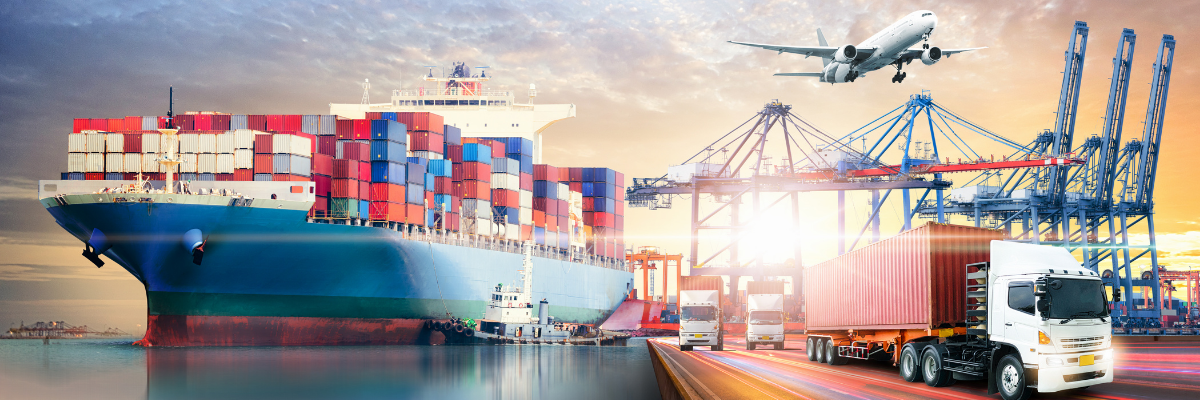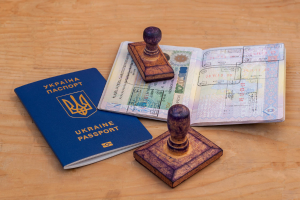01 Jul 2024 | International Trade and Export Import Careers
0
194
Understanding International Trade and Export/Import Careers
Globalization has in particular promoted trade as a fundamental activity of nations to enable the import and export of goods and services and capital. This rapidly growing industry offers a wide range of employment opportunities in export and import, thus permitting professionals to focus on companies and markets of different countries. Regardless of whether the individual is interested in starting their own business or joining an existing company as an employee, international trade is a fulfilling and demanding field.
What is International Trade?
International trade is the exchange of products and services from one nation to another nation. Trade enables nations to get the products and services that may not be available in their local market hence boosting growth of economy through exchange of culture.
Key Components of International Trade
Export: Selling goods and services produced in one country to another.
Import: Buying goods and services from foreign producers to use domestically.
Trade Agreements: Legal frameworks that facilitate trade between countries.
Tariffs and Duties: Taxes imposed on imported goods to protect domestic industries.
Why Choose a Career in International Trade?
Choosing a career in international trade opens doors to diverse job opportunities, exposure to global markets, and the chance to work with multinational companies. Here are some compelling reasons to consider this field:
Global Exposure: Work with clients and partners worldwide.
Diverse Roles: Opportunities range from logistics and compliance to sales and marketing.
Economic Impact: Contribute to the growth of the global economy.
Innovation: Engage with cutting-edge technologies and practices in trade.
Top Careers in Export/Import
Export Manager
An export manager is directly responsible for the sales of products in foreign markets. They come up with ways to penetrate into new markets, abide by the laws as well as maintain good engagements with overseas consumers.
Responsibilities:
Identifying new export markets
Signing contracts with foreign based companies
Implementation of the regulation of international trade
Opening and managing a logistical infrastructure
Import Manager
Import managers are involved in the purchase of products from overseas suppliers. They make sure that products imported are of the right quality, haggle on prices and ways of getting products through the borders.
Responsibilities:
Outsourcing goods from foreign suppliers
bargaining for contracts and prices
Implementing import policies and measures
Working with customs and logistics departments
Trade Compliance Specialist
International trade compliance specialists are responsible for making sure companies stick to international trade laws and policy. They address shifts in trade policies and put in place adherence measures.
Responsibilities:
Designing and putting in place trade compliance mechanisms
Surveillance of changes to trade laws and regulations
Planning and executing audits, and risk analysis
Updating the staffs on compliance matters
International Sales Representative
They are responsible for selling products in the global markets as they act as salesmen on the international scenes. They cultivate customer relations with the international clients, analyze market trends and tailor solutions to achieve sales goals.
Responsibilities:
Ideas about its possible customers overseas
Developing sales strategies
Signing and initialing agreements
Managing client relationships
Logistics and Supply Chain Manager
It’s the logistics and supply chain managers who facilitate the flow of commodities between countries. They coordinate movement of products, storage, and distribution to ensure that goods reach the market on time.
Responsibilities:
controlling overseas transports
Overseeing aspects of warehousing and distribution
Logistics regulations compliance
Improving supply chain managing
Skills Required for Success in International Trade Careers
Communication: Effective communication with international clients and partners.
Negotiation: Ability to negotiate favorable terms and contracts.
Cultural Awareness: Understanding and respecting cultural differences.
Analytical Skills: Analyzing market trends and trade data.
Regulatory Knowledge: Familiarity with international trade laws and regulations.
Project Management: Coordinating complex logistics and supply chain operations.
Educational Pathways and Certifications
Educational Requirements
Many professions in international trade call for no less than a bachelor’s degree in business, international relations or a similar field. Additional jobs may necessitate a master’s degree or other certifications and licenses in the field.
Certifications
Certified International Trade Professional (CITP): Recognizes expertise in international trade.
Customs Broker License: Required for professionals handling customs documentation.
Export Compliance Certification: Focuses on ensuring compliance with export regulations.
Opportunities for Entrepreneurs
Starting Your Own Export/Import Business
Specifically in international trade industry, people can begin their export/import companies as they best know how to link markets and assist in marketing. Steps to start an export/import business include:
Market Research: Identifying demand and supply gaps in target markets.
Business Plan: Developing a comprehensive business plan.
Licensing and Permits: Obtaining necessary licenses and permits.
Supplier and Buyer Relationships: Building relationships with suppliers and buyers.
Logistics and Compliance: Setting up logistics and compliance processes.
Benefits of Entrepreneurship in International Trade
Flexibility: Control over business operations and strategies.
Profit Potential: High-profit margins due to the global reach.
Innovation: Opportunity to introduce new products to different markets.
Global Network: Building a network of international contacts and partners.
Future Trends in International Trade Careers
Digital Transformation
Digital technologies have become a transformative force that is influencing international trade in a myriad of ways. E-commerce as the new way for selling products, blockchain as the instrument for making transactions more secure, and AI to predict the demand are the trends in the field of trade.
Sustainability
Sustainability has emerged as a critical discourse in international trade. Ensuring environmental compliance and responding to customer demands for environment-friendly products have seen corporations embrace green logistics, sustainable procurement, and low carbon strategies.
Policy Changes
The market is affected through factors such as new trade agreements or setting of tariffs within the international market. They therefore have to keep abreast if the changes that take place in the environments so as to effectively operate in the system.
Conclusion
Export/import and international trade, as a career path and business experience, is very rich in opportunities for both professionals and businessmen. Thanks to their skills, education, and ability to understand the markets of a particular country or region, people can have a brilliant career working in this field. If you are aspiring to render your service to multinational companies or to start your own business in international trade, the opportunities are endless and full of hope.
For more assistance, please visit our study abroad consultancy services and explore our wide range of offerings for students interested in studying in the USA, studying in the UK, studying in Canada, studying in Australia, studying in Ireland, and many other countries.
Frequently Asked Questions
1. What qualifications do I need for a career in international trade?
In order to secure a job that involves working in international trade, one must have the minimum educational requirement of a bachelors degree in business or international relations. Higher levels of the job may demand academic expertise in the form of a master’s degree and professional credentials like the CITP or Customs Broker License.
2. What are the main responsibilities of an export manager?
An export manager is responsible for identifying new export markets, negotiating contracts with international clients, ensuring compliance with international trade regulations, and managing logistics and supply chains to facilitate the export of goods.
3. How do I start my own export/import business?
Starting your own export/import business involves conducting market research, developing a business plan, obtaining necessary licenses and permits, building relationships with suppliers and buyers, and setting up logistics and compliance processes.
4. What are the key skills needed for success in international trade careers?
Key skills for success in international trade careers include effective communication, negotiation, cultural awareness, analytical skills, regulatory knowledge, and project management.
5. How is digital transformation affecting international trade?
Digital transformation is revolutionizing international trade through the integration of e-commerce platforms, blockchain for secure transactions, and AI for predictive analytics, making trade processes more efficient and secure.


